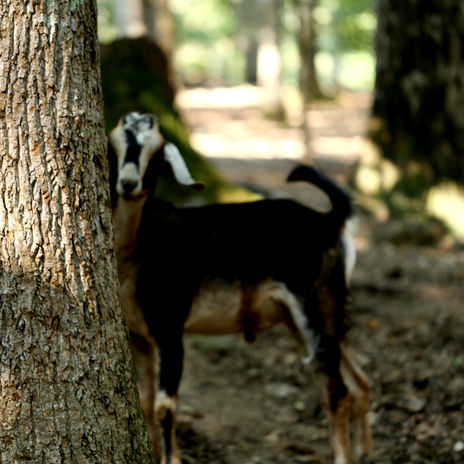Golden Pond Farms
Great Pyrenees, Llamas, Pygmy Goats, Nubian Goats and Miniature Donkeys
History of the Nubian Goat
The first Nubian Goats brought to America was around 1896. Nubian Goats have become the most popular breed of goats in the United States. They are not the largest milk producing goat, however, their milk has the highest butterfat content and is thought to be more flavorful. If worked with and socialized at an early age, they can be very docile and sweet goats. They grow to be very large 135 - 175 lbs. Most are dis-budded when they are only a couple weeks old (make sure they have their CD&T vaccination prior to dis-budding). This is for safety during milking as well as safety to the goat to not get their horns stuck in fencing, hay holders and so forth. They require a simple shelter to block the wind and rain. They should be fed a good quality hay, high protein goat chow, loose minerals free choice and clean water daily.
A strong and tall fence, at least 4 feet high but I recommend 5 feet tall, is required due to the Nubian Goats natural ability to jump and tall height of 32"-36". If you have multiple in tact males, they should not be next to each other with a fence in between. They might fence fight and cause damage to fencing as well as themselves. Do not allow males and females to remain together once weaned until the female has reached a proper breeding size at least 80 lbs. Males should not be left with pregnant does and especially not once kids are born. All goats are heard animals and should be kept with other goats. When males are not breeding they can be kept with wethered male goats or other animals. Our breeding male is kept with a male llama, miniature donkeys and an emu. They all get along very well.
We vaccinate all goats once a year with a CD&T vaccine (CDT protects healthy sheep and goats against clostridium perfringins type C and D (overeating disease) and clostridium tetani (tetanus). Pregnant females should be vaccinated in the last month before giving birth. Their eyelids should be checked for their FAMACHA score regularly. If the inside of their eyelids are not bright pink - red, a fecal sample should be checked by a vet or if trained to check yourself on a microscope. This will help to determine the type of de-wormer that should be used. Re-treat with the same de-wormer in 2 weeks and then recheck the fecal in 3 weeks from the last dose. Check hooves regularly for trimming. This will depend on the ground in your area. Our farm is located on rocky soil which keeps their hooves in good shape and trimming is not needed more than twice a year. Soft soil will allow hooves to grow quicker.








